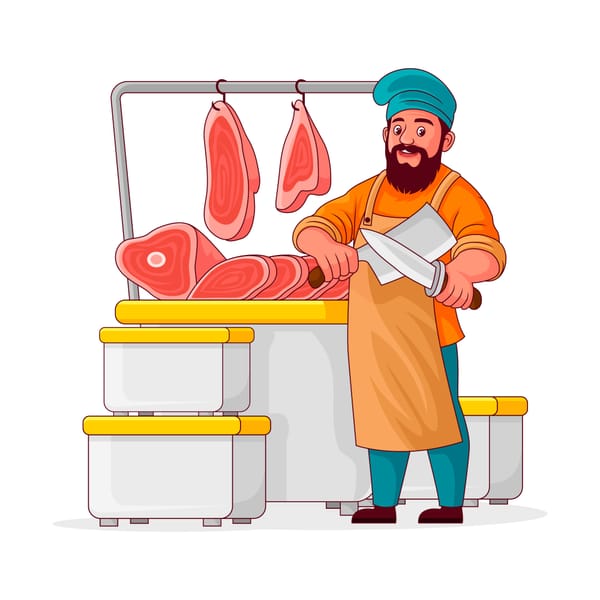Why Now Is the Perfect Time to Become a B2B Food Marketplace Seller

Are you thinking of going global with your food business? Now's the perfect time to explore B2B food marketplaces. With digital platforms booming, becoming a marketplace seller allows you to handle orders efficiently, build global relationships, and connect with new customers. Become a B2B seller to take advantage of this opportunity and expand your brand globally.
Explosive Growth in the B2B Food Marketplace Sector
There is a massive growth in the B2B food marketplace due to these factors:
- Digital Transformation: Online marketplaces simplify food trading, helping B2B sellers reach a broader audience and streamline operations.
- Global Expansion: These platforms remove geographical barriers, allowing businesses to enter the international markets and expand their consumer base.
- Technological Innovations: Advances like real-time tracking and secure payment gateways enhance transaction efficiency and build trust between both parties.
Increasing Demand from Businesses
Businesses are increasingly turning to online marketplaces to sell products for several reasons:
- Efficient Sourcing: Businesses can quickly and easily find, compare, and purchase products through online food B2B marketplaces.
- Competitive Pricing: The best online marketplace to sell will offer competitive prices and bulk purchasing options, helping businesses reduce procurement costs.
- Diverse Product Range: Marketplace online selling includes everything from raw materials to ingredients to other food essentials.
Leveraging Technology for Success
To succeed as a B2B seller, leveraging technology effectively is essential. Here are some tips on using technology to increase your success:
- Data Analytics: Advanced analytics can help you understand customer behavior, market trends, and sales performance. This results in better decision-making and targeted marketing.
- Automation Tools: Automate tasks like order fulfillment, inventory control, and customer service to boost efficiency and satisfaction.
- Mobile Optimization: Ensure mobile-friendly listings enhance user experience, engagement, and conversion rates.
- Cloud Integration: It allows you to run your company from any location. It also improves your flexibility to respond to market changes quickly.
Economic Shifts and Opportunities
The current economic environment presents several opportunities for B2B food marketplace sellers:
- Trade Policy Changes: Monitor global trade policies to adapt strategies and tap into new markets with favorable agreements.
- Consumer Preferences: Offer eco-friendly and health-conscious products to buyers seeking sustainability and organic options.
- Economic Recovery: Capitalize on economic recovery to introduce new products and expand market presence.
How to Become a B2B Food Marketplace Seller
Here's a step-by-step guide to becoming a successful B2B food marketplace seller:
Step 1 - Choose a platform that fits your goals and needs.
Step 2 - Create a compelling, detailed profile with quality photos.
Step 3 - Ensure listings are complete, keyword-rich, and attractive.
Step 4 - Interact with buyers, address queries, and provide excellent service.
Step 5 - Review sales data regularly and adjust strategies as needed.
Marketplace Online Selling Tips
To excel in online marketplace selling, consider these tips:
1. Invest in high-quality product photos.
2. Use marketplace marketing tools to boost visibility.
3. Keep up with industry trends and update offerings accordingly.
4. Ensure accurate descriptions, timely delivery, and excellent customer service.
Key Trends Affecting the B2B Food Industry
You may achieve success in the B2B food market by using the latest trends and choosing the best online marketplace to sell.
The following are a few key trends that are currently impacting the industry:
- Increased Focus on Sustainability: Companies seek eco-friendly practices, such as organic products and reduced packaging waste.
- Digital Integration: Modern technologies like AI and MI enhance marketplace efficiency with automation and personalized recommendations.
- Demand for Transparency: Buyers want clear information on sourcing and supply chains to build trust.
- Rise of Direct-to-Consumer Models: Businesses are offering tailored products directly to clients, bypassing traditional distribution.
- Growing Popularity of Food Auctions: Auctions provide a dynamic platform for finding unique products and fostering interactions.




